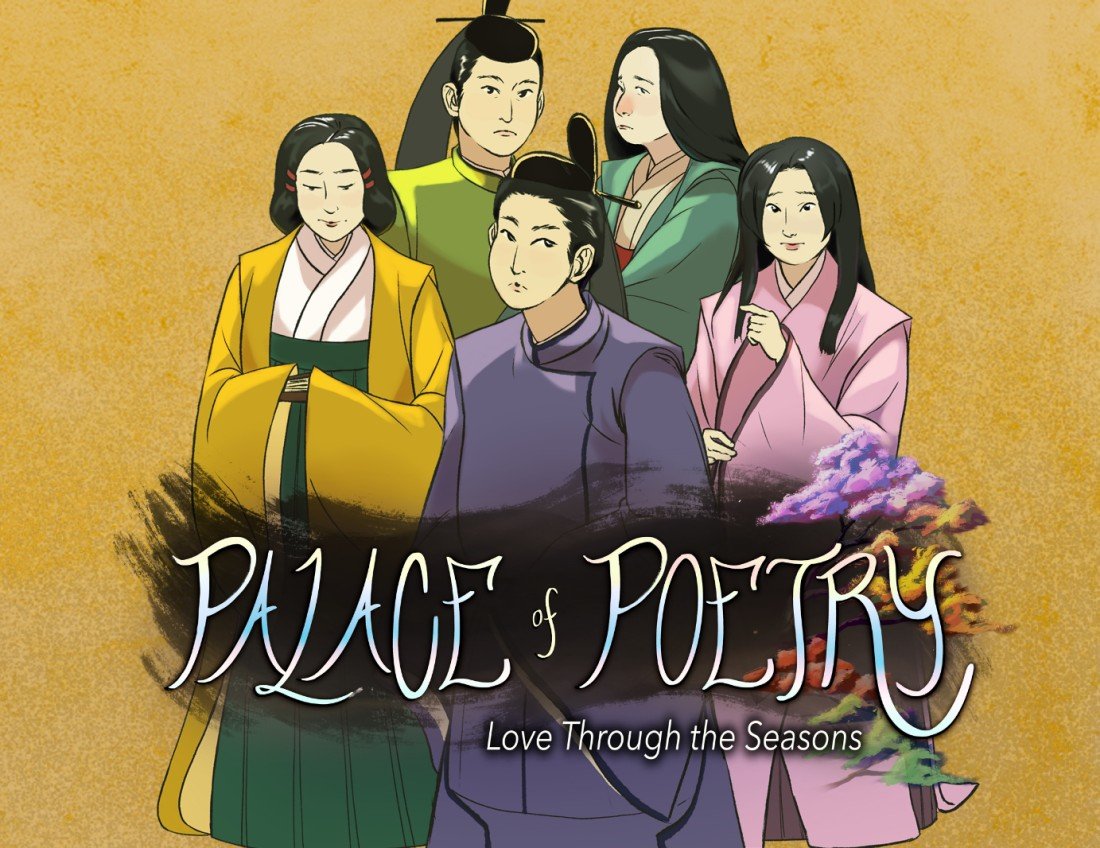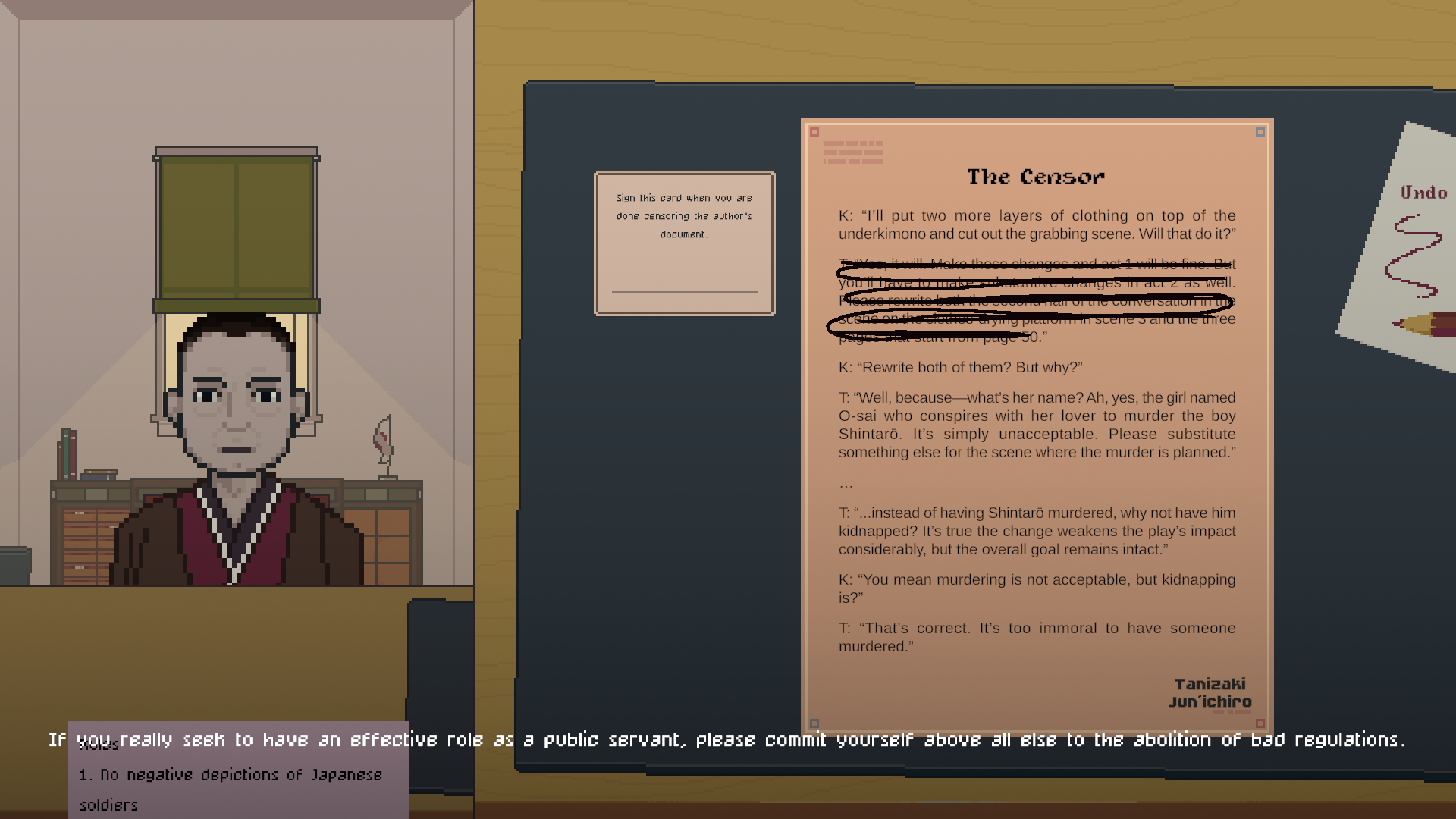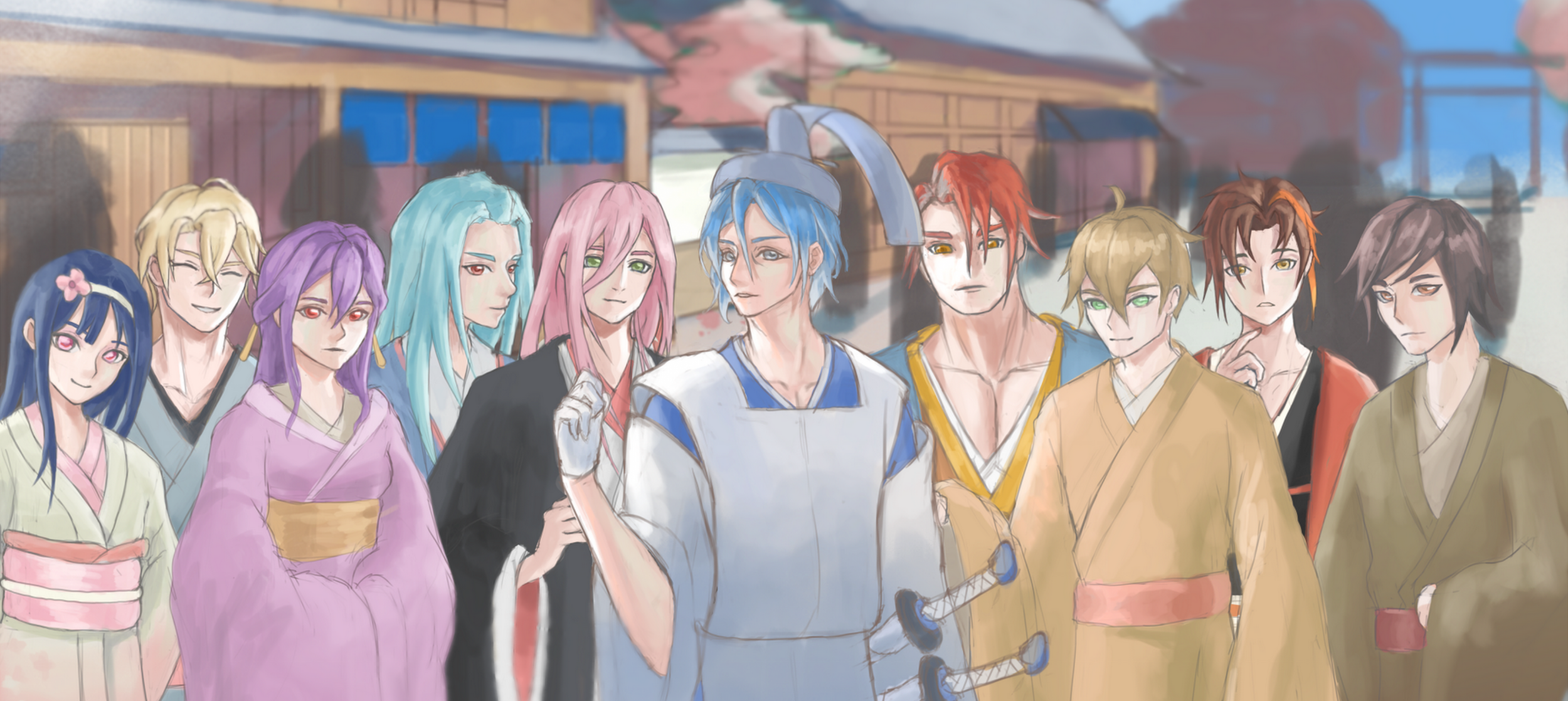This page is intended for teachers but also for anyone interested in learning more about Japanese history. Here you will find JapanLab projects that are ready to be incorporated into your classroom. Want to teach your students about Japan’s tumultuous encounter with foreign powers in the 19th century? What about violence in Medieval Japan, or what it might have been like to be one of the famous 47 ronin? How about tools for remembering kanji and hiragana? We’ve got all that and more. For detailed lesson plans, see here. All the games shown here have been designed by teams of undergraduate students working closely with a faculty advisor.
-

Palace of Poetry
The Tale of Genji is a sweeping narrative of love, desire, grief, and ambition set a thousand years ago. Centered on the radiant Prince Genji—a charismatic playboy and skilled politician—the story weaves together a rich tapestry of characters, from elegant retired empresses to astute serving women. In Palace of Poetry, a first-person narrative experience, players engage with the women of Genji’s world, immersing themselves in the culture, history, gender dynamics, and daily life of Heian-era Japan. The game seeks to bring this literary classic to a modern audience, making its timeless themes and intricate social world more accessible and engaging.
-

The Censor's Desk
The Censor’s Desk places the player in the shoes of a new bureaucrat that’s in charge of censoring papers that violate a set of rules given to them by the government. Imagine you are a government censor working for the Japanese government in imperial Japan. Or an official in the CCD (Civil Censorship Detachment) at General Headquarters working under General Douglas MacArthur in the late 1940s during the Allied Occupation of Japan; an employee at Eirin, the self-regulatory agency for film ratings and regulation, after its establishment in 1949. The rules of censorship are constantly changing based on shifting political and practical considerations, and that, even from the start, these rules were never so clearcut
-

Ready, Set, Yokohama
Steam trains, boats, the telegraph, and more! These are just taste of the novelties you are preparing to explore. How has Japan adapted to expanding foreign influence and likewise, how has the nation of the rising sun infiltrated the outside world? These are the questions you will be asking throughout your sojourn to and from Yokohama treaty port, a wide-open harbor of possibility, opportunity, and adventure. Race from Tokyo to Yokohama in this now-digitized rich and colorful sugoroku board game from 1872 and learn about travel, technology, and cultural exchange in Japan during the late-19th century.
-

Ako: A Tale of Loyalty
Imagine you're a young samurai in Japan in 1701. You have to make an excruciating choice between family and honor – either go into impoverished exile with your mother and sister who will need your help to survive, or join your fellow masterless samurai in a quixotic quest to avenge the death of your dishonored lord. Which do you choose? Ako: A Test of Loyalty takes you into the story of the 47 ronin, one of the most famous episodes in Japanese history.
-

Ghosts over the Water
It is the summer of 1853. A small fleet of ships commanded by Matthew C. Perry have stormed into Edo Bay, engaging in no violence but causing immense panic. Over two hundred years had passed with Japanese borders closed to outsiders—and suddenly, these foreigners were at the country’s shores demanding open trade. You play as Tsumaki Naoharu: an ambitious, curious young samurai working under Abe Masahiro, the chief senior councillor of Tokugawa Japan. In his lofty position, Masahiro has the imperative duty of deciding how Japan will respond to this newfound threat. However, the answer to this deceptively simple question of, “How do we answer to the demands of the foreigners?” is far from clear.
-

Joshu
Japanese Online Self-Help Utility (JOSHU) is a set of innovative language tools developed by Dr Naoko Suito, who taught Japanese courses at the University of Texas at Austin for many years. JOSHU includes a range of tools for Japanese language instructors and for anyone interested in learning Japanese. In Japanese, JOSHU literally means "assistant", or "tutor", which is what this website attempts to do for anyone interested in learning the Japanese language.
-

Mapping Violence in Medieval Japan
This digital exhibit helps students learn how to make sense of a world at war. A variety of digital tools provide students with unique access to the causes, origins, and connections that sustained institutional power during the Sengoku period (1477-1573).
-

Sumoroku
Welcome to Sumoroku–the sumo-themed sugoroku! Sugoroku is a type of Japanese board game with a very simple premise: reach the end. While playing sugoroku may be a breeze, life as a rikishi fighting his way to the top is anything but.
-

Death and Taxes
The popular image of the samurai centers on combat and the mythical code of bushido. This short game explores the grinding economic reality of a low-ranking samurai in Tokugawa period (1600-1868) Japan. For its source material, it draws from a pathbreaking article by historian Constantine N. Vaporis ("Samurai and Merchant in Mid-Tokugawa Japan.")
-

Land of the Rising Star
This game charts a Japanese actor’s uncertain journey to transnational stardom. Several Japanese stars have historically paved the way: Hayakawa Sessue broke into the U.S. and European markets amidst rising Japanese national pride in the 1920s; Yamaguchi Yoshiko emerged as a symbol of ethnic harmony within Asian colonies under Japanese empire during WWII; and Takakura Ken epitomized the zenith of Sino-Japanese diplomatic relations in the 1980s. In the game, the player takes on the role of an aspiring Japanese star who must navigate the path to international fame. Which roles will you accept? Which will you decline? And at what cost or benefit? How to navigate the many pressures from your talent agent, your fans, the media, and sometimes also the censorious authorities?

